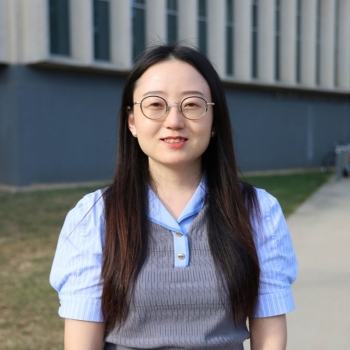Yanni Cao
Postdoctoral Researcher
Environmental Health Sciences

Biography
Yanni is an ecological geographer who earned her PhD in human geography from the University of the Chinese Academy of Sciences in 2021. She then completed two years of postdoctoral training at the Research Center for Eco-Environmental Sciences, Chinese Academy of Sciences, followed by a year of postdoctoral research in the Department of Geography at the University of Hong Kong. She joined Ohio State in 2024.
Yanni is deeply interested in the spatial distribution of ecological environments and their relationship to human benefits. Her previous research focused on the coupling and coordination between ecosystem patterns, ecosystem services and urbanization, as well as socio-economic development. At Ohio State, her research will focus on the spatial distribution of ecological and socio-economic environments and their impact on human health. Yanni is passionate about uncovering the mechanisms by which the environment affects human health, aiming to provide effective theoretical support for public health policy. She believes that her research holds significant value and meaning for the socioeconomic development of human society.
Education
- Ph.D.
- Human Geography, University of Chinese Academy of Sciences, 2021
- M.Ed.
- Subject Teaching (Geography), Beijing Normal University, 2014
- B.S.
- Geographic Science, Northwest Normal University, 2012
- B.A.
- English, Northwest Normal University, 2012
Research interests
Yanni's research focuses on the spatial distribution of ecological environments and their impact on human well-being, particularly the link between ecosystem services and health. She explores how ecological patterns, such as green spaces and natural resources, influence physical and mental health outcomes. Her work also examines the interaction between socio-economic factors and ecosystem services, aiming to inform public health policies that promote healthier, more sustainable communities.
Select publications
- Cao Y, Kong L, Zhang L, Ouyang Z. The balance between economic development and ecosystem service value in the process of land urbanization: A case study of China’s land urbanization from 2000 to 2015. Land Use Policy. 2021;108:105536. doi:10.1016/j.landusepol.2021.105536 (ESI Top 0.1%)
- Cao Y, Wu T, Kong L, Wang X, Zhang L, Ouyang Z. The drivers and spatial distribution of economic efficiency in China’s cities. Journal of Geographical Sciences. 2022;32(8):1427-1450. doi:10.1007/s11442-022-2004-7
- Cao Y, Kong L, Zhang L, Ouyang Z. Spatial characteristics of ecological degradation and restoration in China from 2000 to 2015 using remote sensing. Restoration Ecology. 2020;28(6):1419-1430. doi:10.1111/rec.13226
- Cao Y, Kong L, Ouyang Z. Characteristics and Driving Mechanism of Regional Ecosystem Assets Change in the Process of Rapid Urbanization—A Case Study of the Beijing–Tianjin–Hebei Urban Agglomeration. Remote Sensing. 2022;14(22):5747. doi:10.3390/rs14225747
- Tang L, Lan T, Xing X, Xie T, Li W, Fang C, Cao Y, Xu Y, Chen D, Wang L, Wu Z, Xu Z, Zhou W. Past achivements and future strategies of eco-environmental construction in mega urban agglomerations in eastern China. Bulletin of Chinese Academy of Sciences, 2023, 38(3): 394-406. doi:10.16418/j.issn.1000-3045.20230120003. (in Chinese)
- Zhang X, Cao Y, Fu X, Zhu T, Wu G. Green transformation of textile and garment industrial zones in China based on the “no waste” concept. Acta Ecologica Sinica. 2021;41(22):8860-8869. (in Chinese)
- Cao Y. The Historical Evolution, Conservation, and Renewal Status Quo and Suggestions of the White Pagoda Temple Historical and Cultural Block in Xicheng District, Beijing. Beijing Planning Review. 2020;(3):131-138. (in Chinese)
- Cao Y, Shen A. Restoration and Reuse of Zhizhu Temple and the Inspiration to the Conservation of Architectural Heritage. Heritage Architecture. 2020;(1):111-118. doi:10.19673/j.cnki.ha.2020.01.012 (in Chinese)
- Cao Y. Introduction to Environmental Education in Joshua Tree National Park. Geography Teaching. 2014;(18):49-51. (in Chinese)
- Cao Y, Wei D, Wang M. The Course and Trend of International Geography Education Viewed from the American Journal of Geography. Teaching Reference of Middle School Geography. 2014;(15):66-67. (in Chinese)